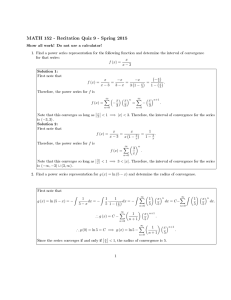Section 10.5 Power series X c
advertisement
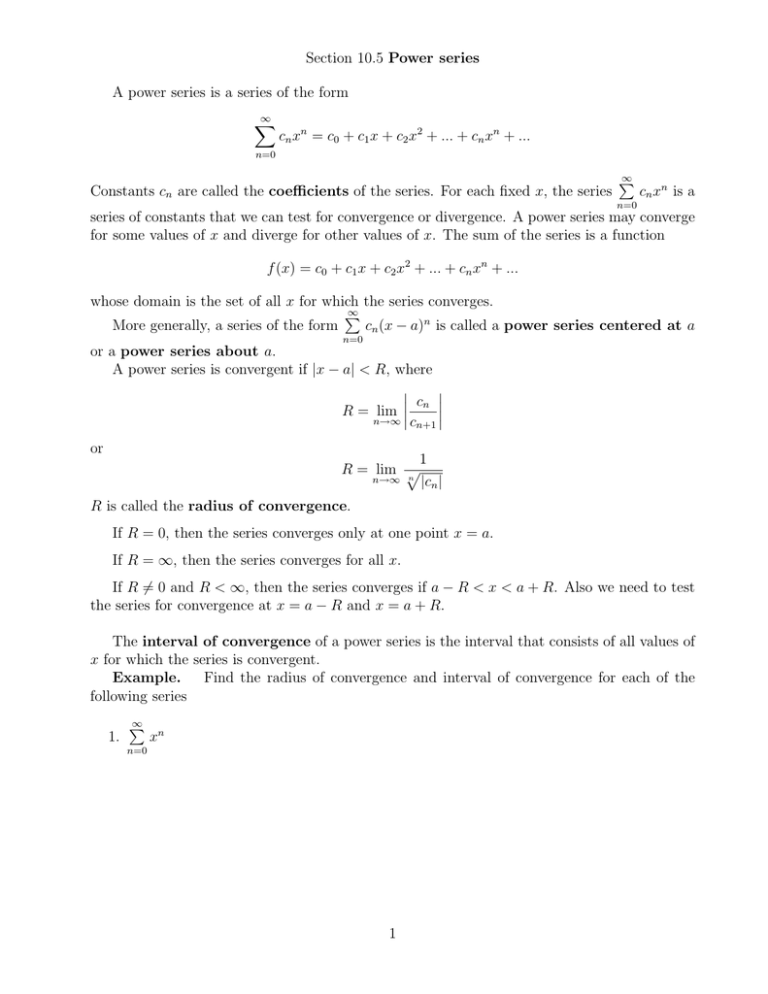
Section 10.5 Power series A power series is a series of the form ∞ X cn xn = c0 + c1 x + c2 x2 + ... + cn xn + ... n=0 Constants cn are called the coefficients of the series. For each fixed x, the series ∞ P cn xn is a n=0 series of constants that we can test for convergence or divergence. A power series may converge for some values of x and diverge for other values of x. The sum of the series is a function f (x) = c0 + c1 x + c2 x2 + ... + cn xn + ... whose domain is the set of all x for which the series converges. ∞ P More generally, a series of the form cn (x − a)n is called a power series centered at a n=0 or a power series about a. A power series is convergent if |x − a| < R, where cn R = lim n→∞ cn+1 or 1 R = lim p n n→∞ |cn | R is called the radius of convergence. If R = 0, then the series converges only at one point x = a. If R = ∞, then the series converges for all x. If R 6= 0 and R < ∞, then the series converges if a − R < x < a + R. Also we need to test the series for convergence at x = a − R and x = a + R. The interval of convergence of a power series is the interval that consists of all values of x for which the series is convergent. Example. Find the radius of convergence and interval of convergence for each of the following series 1. ∞ P xn n=0 1 ∞ X xn 2. n+2 n=0 ∞ X (−1)n xn √ 3. 3 n n=1 4. ∞ X n2 xn n=0 10n 2 5. ∞ X (x − 4)n n=1 n5n 3
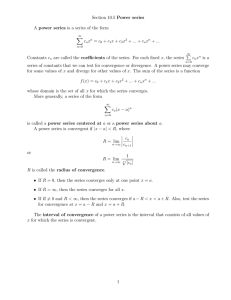
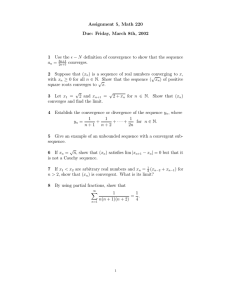
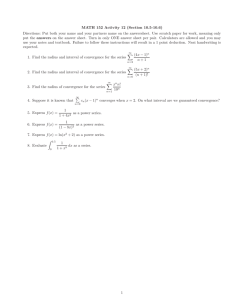
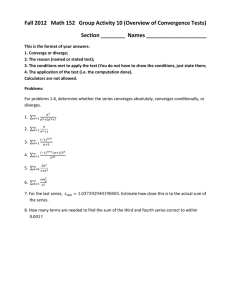
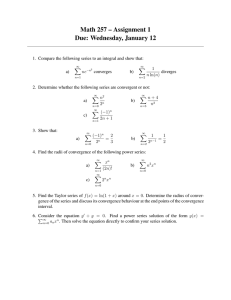
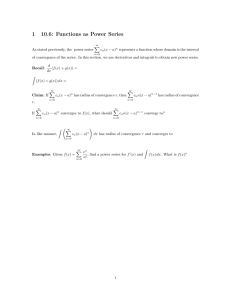
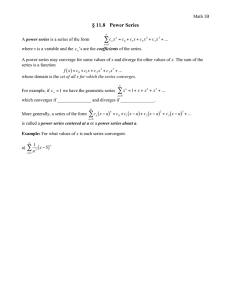
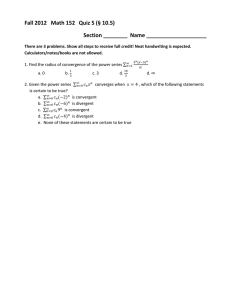
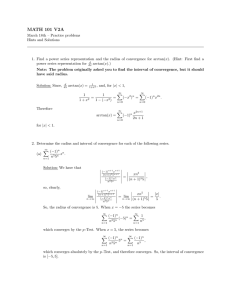
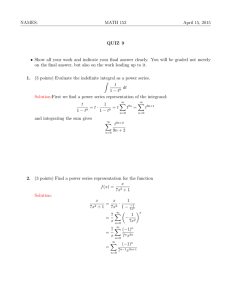
![Student number Name [SURNAME(S), Givenname(s)] MATH 101, Section 212 (CSP)](http://s2.studylib.net/store/data/011174937_1-0165de50ff15ed039426d4030f34bca1-300x300.png)
